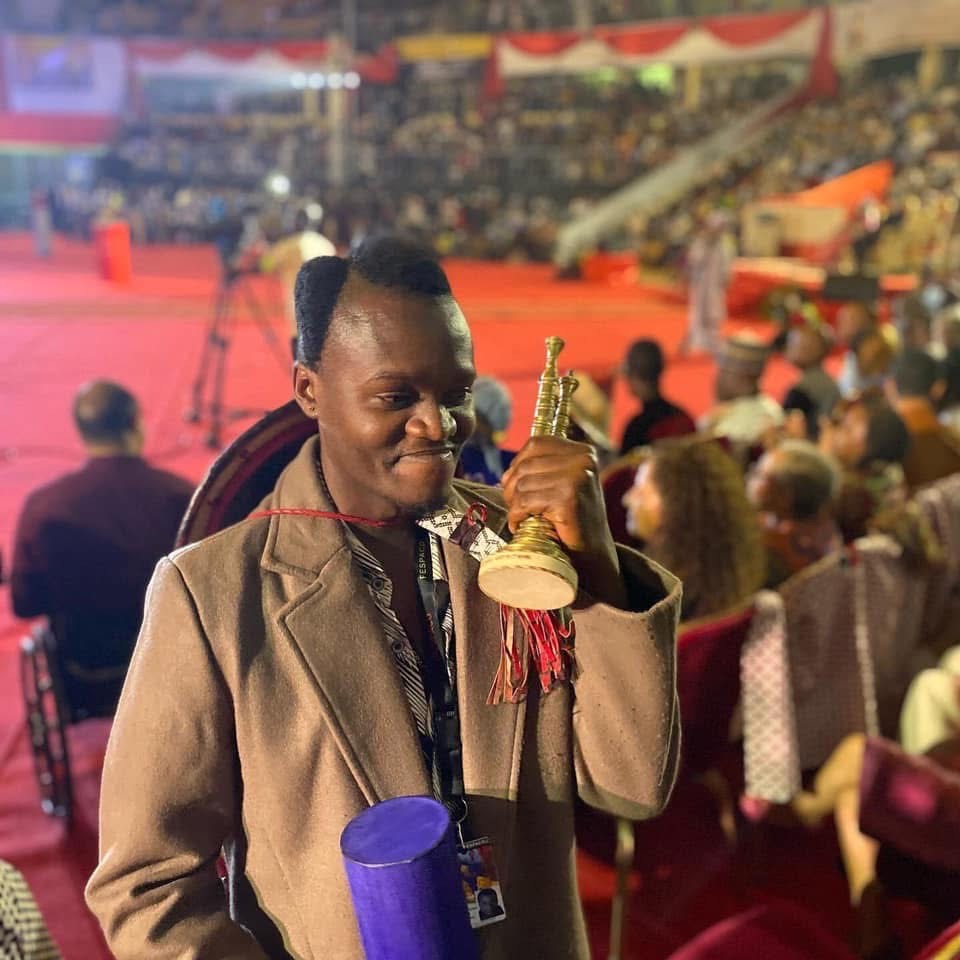Tell us a little about yourself...
I was born in Nigeria but moved to England when I was 12 years old. I remember growing up watching a lot of really incredible Nigerian soap-operas that were on television in the evenings and on weekends. Some of them still etched in my subconscious, I can’t forget the lyrics to Super Story’s theme song: “This is Super Story, a life of Strife and Sorrows”
I also occasionally watched American films with my family; I was definitely too young to watch this but I distinctly recall seeing Paul Verhoeven’s masterpiece Starship Troopers as a 10 year old, it was a truly unforgettable experience. I was blown away by the story, themes and breathtaking action sequences, so I enjoyed watching films with my siblings but I wasn’t really deeply interested in cinema. In England, films became my escape. When I moved here, I felt this sense of loss for the community I had left behind.
London was a very stark contrast to Nigeria so I struggled to fit in, I was definitely the quiet kid in class. Just as I had watched Nigerian Soaps, I also started with British Soaps like EastEnders and Emmerdale, then gradually progressed to single dramas on BBC and Channel 4. Then I started watching the American films that would play on TV on Saturday and Sunday nights.

What inspired you to become a filmmaker, and how has your heritage influenced your work?
To be quite honest, it wasn’t until I was 14/15 years old that I realised that someone actually directed all these films I was seeing. I remember I was watching a lot of work by Steven Spielberg and Martin Scorsese at the time and I was inspired by the fact that these directors created their own cinematic language and universe; they crafted worlds that had a singularity of vision and voice. I decided I wanted to do what they did, that’s really when my filmmaking journey began.
Prior to going to film school in my early 20s, my films were primarily homages to the films that I had watched in university. I made a lot of films that were strongly inspired by the work of Jean Luc Godard, Spike Lee, Vittorio De Sica and other filmmakers. There was no evidence of my voice in the work I was making, I was effectively almost remaking specific elements of their work in a British setting and landscape.
My growth and development as a filmmaker is tied to my Nigerian-British roots and identity. When I first moved to England, I was made to feel like my Nigerian culture was not important or valid. I was regularly teased about my accent and told to go back home. An experience like that makes you question who you are. I definitely did. I tried to shun my Nigerian roots and totally embraced a British identity. However, as I began to make films and went to film school, I realised that my Nigerian culture made me quite special and unique from my British peers and colleagues. In my mid- 20’s, I began to really evaluate who I was and what type of stories I wanted to tell. Developing my voice took place in film school. I had a very long conversation with my tutor who asked me what type of filmmaker I wanted to be. He emphasised that making truly personal films that reflected who I was would result in powerful cinema. I was already questioning the type of stories I
wanted to tell, so I made the conscious choice to create work that really reflected who I was. I completely embraced my Nigerian identity and worked really hard to tell stories that captured my culture from a diasporic lens and perspective. Filmmaking for me has been a therapeutic experience, it’s forced me to confront my past and my present journey. It’s made me more aware of who I am and my identity as a filmmaker. Completely embracing my identity has positively shaped and transformed my life and work.
What challenges have you faced as a filmmaker of African origin, and how did you overcome them?
What type of films do you want to make? What type of filmmaker do you want to be? I think it’s important that every filmmaker ask themselves these questions. I am so glad I did, I realised that I wanted to tell stories shaped by my cultural heritage. However, it is in coming to this realisation that has resulted in some of the challenges I have experienced. I have definitely been in meetings with individuals or institutions that have not always understood the nuances of my stories. Some have also alluded that because of the nature
of my stories and its cultural specificity, I might not be able to tell other type of stories.
It is quite disheartening because my work is deeply Nigerian but also universal and deeply human. Italian Neorealism and films by Ingmar Bergman, Carl Dreyer and Yasujiro Ozu have shaped my stories. Implicit in these works are profound and multifaceted Italian, Swedish, Danish and Japanese stories that have been celebrated all around the world. They have screened at international film festivals, won Academy awards and are referenced and revered by scholars and audiences. These film-makers inspire me to continue to tell my stories in Yoruba, informed by my culture and roots.

What advice would you give to aspiring African filmmakers aiming to share their stories on a global stage?
My advice will always be to hone their craft, this can only be achieved by making a lot of films – in film school, I directed over seven short films in one year. I left school and continued to make films. With each film, I grew and evolved, the lessons I learnt from each film informed the subsequent one I made.
So keep making films, don’t stop. Tell your stories by any means necessary.













